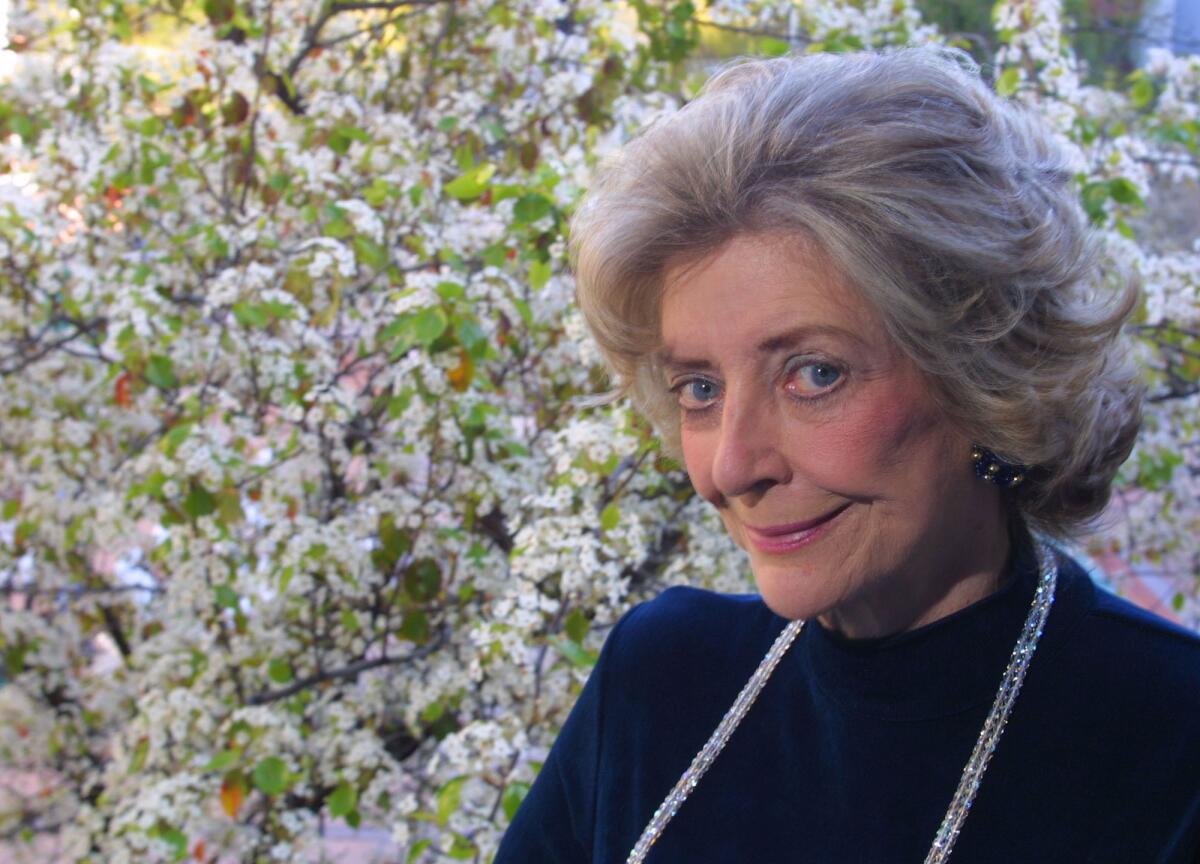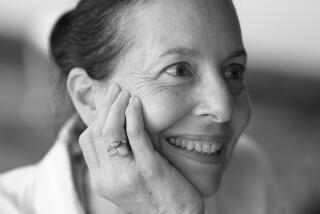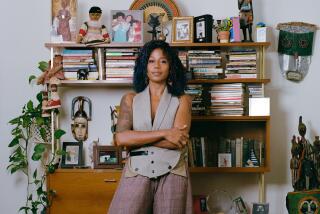Pulitzer Prize-winning poet Carolyn Kizer is dead at 89

- Share via
Carolyn Kizer, who won the Pulitzer Prize in poetry for her 1985 collection “Yin” and served as the first literature director of the National Endowment for the Arts as well as founding editor of Poetry Northwest, died Thursday in Sonoma, Calif., at 89 of age-related dementia.
Kizer’s career was long and fascinating. At 17 she published a poem in the New Yorker (her only poem to appear in that publication, as it turned out), but it wasn’t until the 1950s that, newly divorced and the mother of three young children, she began to study with Stanley Kunitz and Theodore Roethke.
“I’m not a formalist,” she told the Los Angeles Times in 2001, “not a confessional poet, not strictly a free-verse poet. … I’m a lucky woman, really. Things always turn out all right for me, but if I have a model in this life, I’ve taken it from the Quakers: ‘Speak truth to power.’”
This is what Kizer did, over a career that stretched for half a century. (She published her last book of poems, “Cool, Calm, and Collected,” in 2000.)
“We are the custodians of the world’s best-kept secret: / Merely the private lives of one-half of humanity,” she wrote in “Pro Femina,” which she began in the early 1960s after reading Simone de Beauvoir’s “The Second Sex.”
“Pro Femina” became one of her signature works, an expression of women’s identity that also argues that power comes to those who take it. “I suppose that’s the poem on which my reputation is based, if any,” Kizer said in 1985. “But I think women needed a dash of cold water, they needed someone to say: ‘Come on, let’s quit making alibis for ourselves, let’s quit having men tell us how weak and emotional we are, and how we are obsessed with lost love, and let’s get on with it.’”
For Kizer, this was one of the most important tools poetry offered, the insistence to be heard. Throughout her career, she stood up for what she believed, persuading Lyndon Johnson to lift a travel ban against Chilean poet Pablo Neruda in 1970, and, 28 years later, resigning (along with her friend Maxine Kumin) as a chancellor of the American Academy of Poets to protest the organization’s lack of diversity.
“I think I’ve really thoroughly internalized my feminism, partly because I got it from my mother and my father; it’s something that occurs on a certain level of my work all the time” she told the Paris Review in 2000.
At the same time, her poems can also zero in on the subtlest interactions, tracing the fleeting arc of wonder and of joy.
“Doctor, I’ll say,” she writes in “Afternoon Happiness,”
“I’m supposed to be a poet.
All life’s awfulness has been grist to me.
We learn that happiness is a Chinese meal,
While sorrow is a nourishment forever.
My new environment is California Dreamer.
I’m fearful I’m forgetting how to brood.
And, Doctor, another thing has got me worried:
I’m not drinking as much as I should ...”
Twitter: @davidulin
More to Read
Sign up for our Book Club newsletter
Get the latest news, events and more from the Los Angeles Times Book Club, and help us get L.A. reading and talking.
You may occasionally receive promotional content from the Los Angeles Times.











